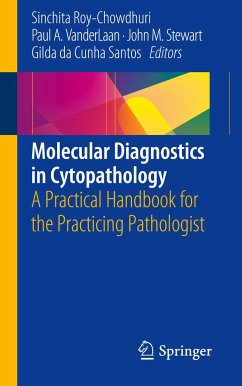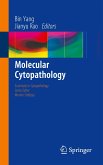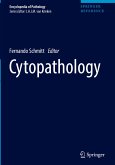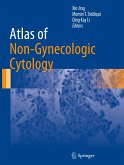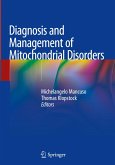Molecular diagnostics are increasingly used to help guide targeted therapy in solid organ tumors and hematologic malignancies. A large proportion of molecular testing is performed on limited-volume samples obtained via minimally invasive techniques, such as fine needle aspiration. Increasingly, cytopathologists play an essential role in this process, both in the triage of specimens during rapid on-site evaluation and in the evaluation of archival samples to determine suitability for ancillary testing. Therefore, it is imperative that practicing cytopathologists stay abreast of up-to-date diagnostic, prognostic, and predictive ancillary tests that can be used on limited cytologic material. This is a challenge since the landscape of known genomic alterations is constantly evolving and the subsequent set of testing options is ever expanding.
The proposed text will provide a user-friendly quick-reference handbook to serve as a useful resource for practicing pathologistsand laboratory personnel dealing with, and interested in, this evolving field of molecular cytopathology. Essential components to be presented include: 1) pre-analytic factors that affect sample selection and evaluation; 2) specimen preparation to maximize confidence in results; 3) interpretation of results; 4) potential limitations; and 5) workflow algorithms. In addition, specific disease specific molecular testing details will be outlined to provide the reader with resources for quick reference. All chapters will be written by experts in their fields and will include the most up-to-date scientific and clinical information.
Molecular Diagnostics in Cytopathology will be of value to Cytopathologists, Cytotechnologists, Cytotechnology students, Cytopathology fellows, Surgical pathologists, Pathology residents and fellows, Molecular Pathologists, Molecular pathology fellows, Molecular technologists, as well as Translational researchers with an interest in molecular cytopathology.
Hinweis: Dieser Artikel kann nur an eine deutsche Lieferadresse ausgeliefert werden.
The proposed text will provide a user-friendly quick-reference handbook to serve as a useful resource for practicing pathologistsand laboratory personnel dealing with, and interested in, this evolving field of molecular cytopathology. Essential components to be presented include: 1) pre-analytic factors that affect sample selection and evaluation; 2) specimen preparation to maximize confidence in results; 3) interpretation of results; 4) potential limitations; and 5) workflow algorithms. In addition, specific disease specific molecular testing details will be outlined to provide the reader with resources for quick reference. All chapters will be written by experts in their fields and will include the most up-to-date scientific and clinical information.
Molecular Diagnostics in Cytopathology will be of value to Cytopathologists, Cytotechnologists, Cytotechnology students, Cytopathology fellows, Surgical pathologists, Pathology residents and fellows, Molecular Pathologists, Molecular pathology fellows, Molecular technologists, as well as Translational researchers with an interest in molecular cytopathology.
Hinweis: Dieser Artikel kann nur an eine deutsche Lieferadresse ausgeliefert werden.

